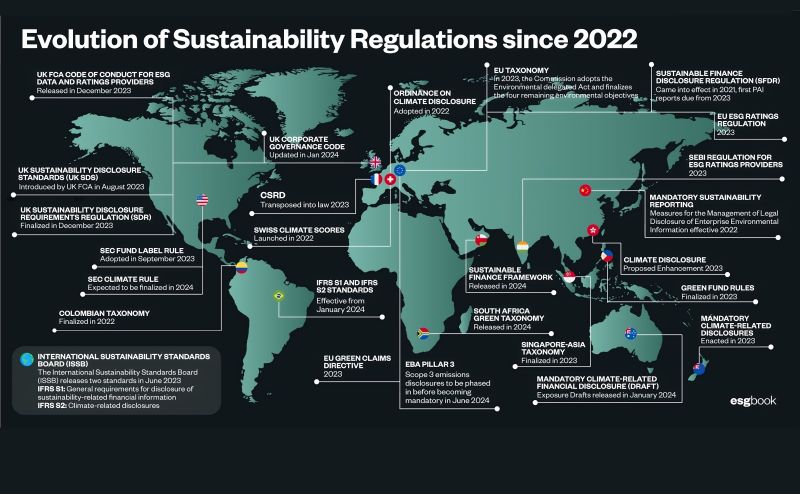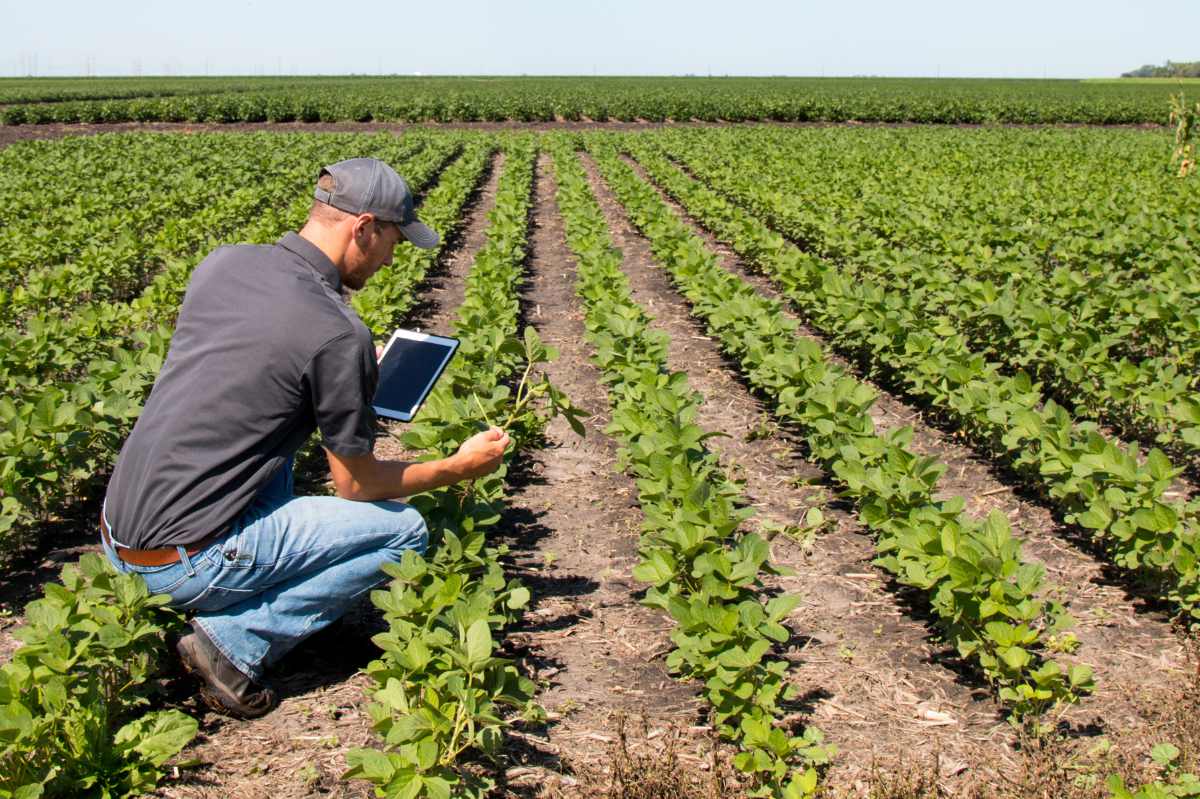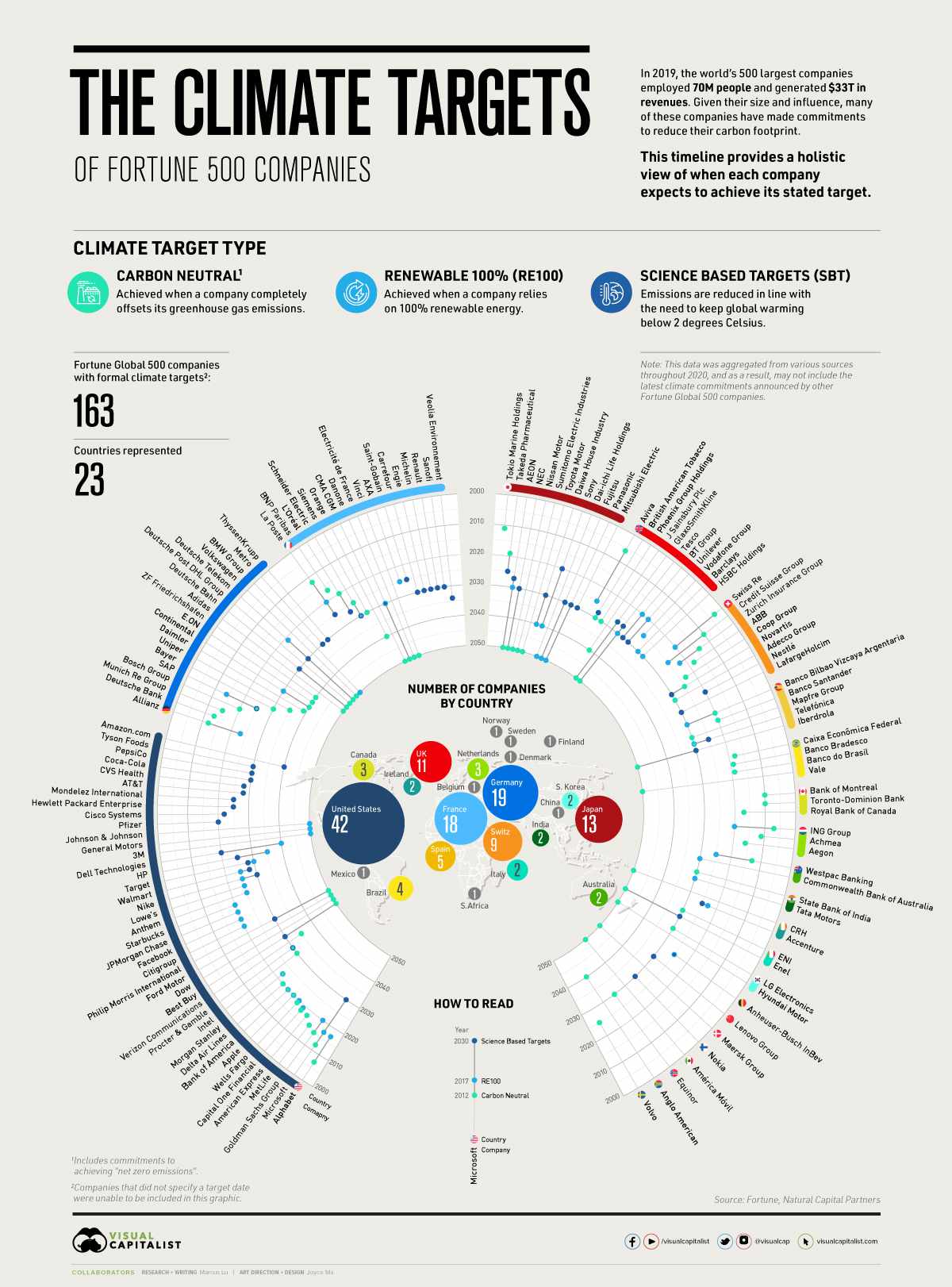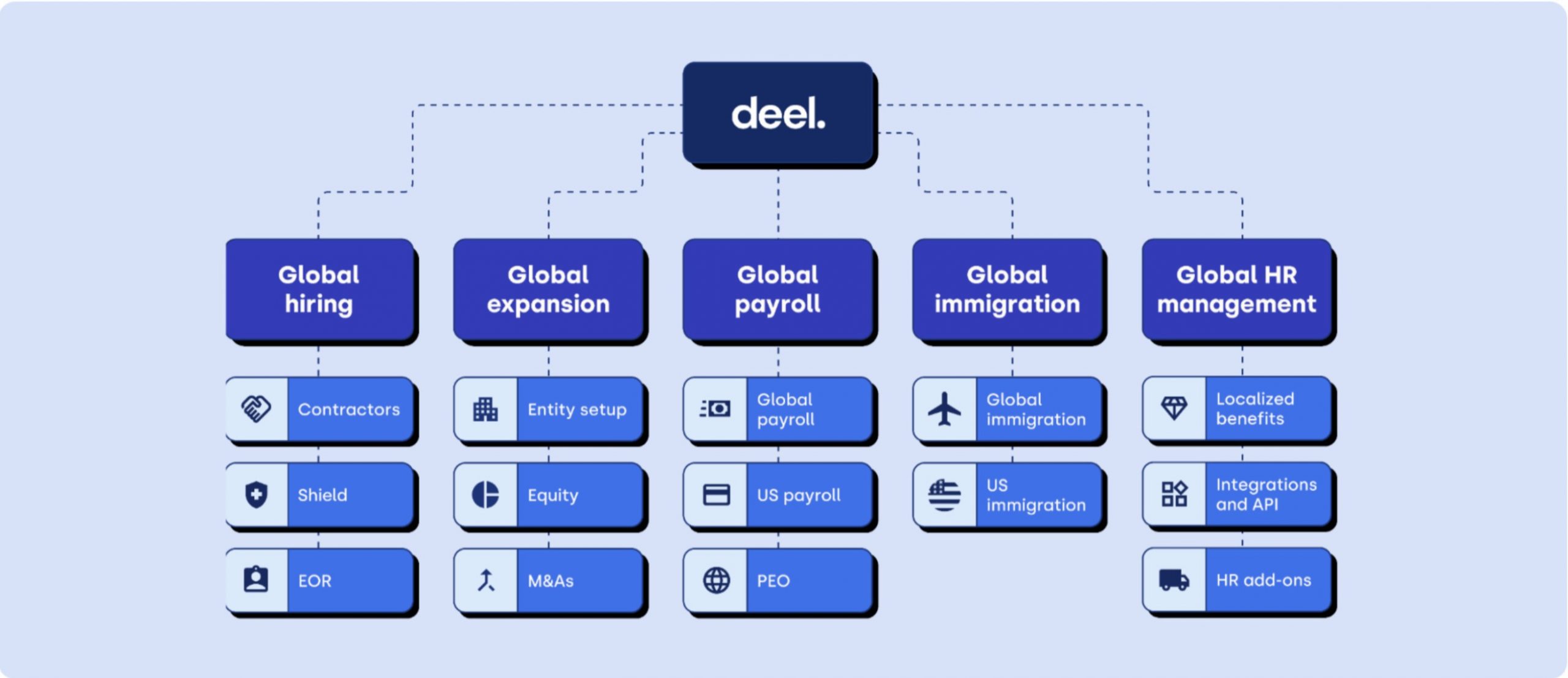Nearly 45,000 climate tech startups and scale-ups existed across the US and Europe in 2022. The US alone accounted for over 14,000 of these companies. Despite recent controversies and an uncertain outlook in the Environmental, Social, and Governance (ESG) sector, major stakeholders, e.g., companies, communities, and citizens continue to carve a path toward a sustainable future. However, based on estimates from the United Nations, the global climate adaptation finance gap now stands anywhere between USD 196-366 billion annually. In addition to the enormous financing challenges, there is also the twin challenge of addressing the growing green skills gap as demand rises for green jobs. At ClearSky 2100 Ventures, we’re on a mission to empower individuals and small businesses to build a better future through our growth solutions for SMEs. In this blog post, we’ll delve into some of the current trends in sustainability and discuss the growth of environmental jobs. As scale-up of climate tech and closing the green skills remain two pressing issues to achieve a sustainable future, we’ll explore edX (MOOC) and Deel (global workforce management). These two solutions from ClearSky 2100 Ventures’ portfolio of partnerships for growth allow employees to close the green skills gap and businesses to scale up and address the climate challenges in the coming decades.
ESG Concerns in the Spotlight
ESG investing has grown rapidly in recent years. By 2025, sustainable investing will reach about $50 trillion accounting for about 33% of global AUM according to Bloomberg. Many funds claim to prioritize sustainability and social responsibility. However, the ESG investment landscape remains fraught with challenges that investors and businesses must navigate carefully. Over the past 12-18 months we’ve witnessed a pivot away from prior ESG and sustainability targets by many global corporations and investors due to lack of clarity on standards and instances of fraud across the ESG landscape.
A key industry challenge is the lack of standardization and consistency in ESG reporting and metrics. There is no universally accepted framework for how companies should measure and disclose their ESG performance, leading to a proliferation of different standards and rating systems. Multiple standards exist as solution providers vie for credibility and market acceptance.
Related to this is the problem of “greenwashing” – when companies make misleading or exaggerated claims about their environmental or social credentials in order to attract ESG-conscious investors. Without robust, independent verification, it can be hard for investors to separate genuine ESG leaders from those simply putting a green veneer on their practices. While greenwashing is front and center, other strategies are employed by companies to mask commitment to ESG and sustainability. This list includes.
- GreenCrowding: Hiding in a group and being the slowest adopter of sustainability policies
- Greenshifting: Placing the blame on consumers
- Greenlighting: Spotlighting a green feature of operations to draw attention from damaging activities being done elsewhere
- Greenrinsing: Regularly changing ESG targets before they are achieved.
- Green Labeling: Misleading consumers on the environmental benefits of a particular product or service.
- Greenhushing: Underreporting strong activities and progress in ESG in fear of being accused of greenwashing.

Source: esgbook
Within the past 12 months the EU has launched several directives on sustainability including the Corporate Sustainability Reporting Directive (CSRD) and the Sustainable Finance Disclosure Regulation (SFDR) While these initiatives will strengthen ESG credibility for business and bring clarity to ESG and risk for investors, they will create a new ecosystem and increased demand for skills to support compliance activities across all business activities.
Another challenge is the tension between ESG principles and financial returns. While there is evidence that ESG-focused funds can perform well, there are concerns that prioritizing sustainability and social impact over pure profit maximization could potentially lead to underperformance in the short term. However, a meta-analysis conducted by researchers in the Netherlands found a positive correlation between ESG and corporate financial performance in 62.6% of the studies. Additionally, climate-related startups continue to outperform in fundraising despite current headwinds in venture capital funding suggesting continued investor interest. In 2023, European climate fintech startups outperformed their US peers in terms of fundraising. Across the climate tech sector carbon management and energy management led investor interest followed by carbon accounting firms. Ultimately, for many investors, managers, and companies, striking the right balance is crucial although the outlook for ESG investing remains positive.
For ESG investing to fulfill its promise, greater standardization, transparency, and accountability will be needed. Investors must also be discerning, looking past marketing hype and claims to assess the substance and genuine commitment to ESG principles. Only then can ESG investing fulfill its potential to drive positive change while also delivering solid financial returns.
The Rise of Green Jobs: Helping the Planet, Helping Your Career
Despite the concerns highlighted, progress on climate and sustainability continues across multiple stakeholders e.g., companies, communities, and citizens continue to move forward on pathways toward a sustainable future. Environment and climate continue to be a pressing concern creating new job opportunities. Green jobs are on the rise, offering a chance to make a real difference while building a fulfilling career. According to IRENA Renewable Energy and Jobs Annual Review, renewable energy jobs worldwide exceeded 12.7 million in 2022.
Defining Green Jobs
So, what exactly are green jobs? According to UNESCO, green jobs are jobs that continue to preserve or restore the environment. This can encompass a wide range of fields, from renewable energy and energy efficiency to sustainable agriculture and conservation.
Green jobs exist in both new and established sectors. Solar panel installers, wind turbine technicians, and green building specialists are all part of the new green economy. But traditional sectors are also getting greener. Environmental engineers, conservation scientists, and even green product designers are all playing a role in making existing industries and businesses more sustainable. For example, between 2020 and 2030, the US Bureau of Labor Statistics forecasts the largest growth in green jobs will come from environmental scientists and specialists (7,300) and solar photovoltaic installers (6,100).
As governments and businesses continue to invest heavily in green technologies and sustainable practices, the green skills gap will continue to widen creating opportunities for many workers to upskill or reskill to meet the demand for green jobs. For example, in the United States, over $500 billion of climate spending is expected from three recently passed laws, the Infrastructure Investment and Jobs Act, CHIPS and Science Act, and the Inflation Reduction Act. This investment will drive higher demand for green jobs.
edX: Preparing for Green Jobs of the Future
In the ever-evolving landscape of online education, the edX platform has emerged as a trusted solution for those seeking to develop careers in sustainability. As a leading provider of Massive Open Online Courses (MOOCs), edX has curated an impressive array of sustainability-focused offerings, catering to learners from all backgrounds and levels of expertise. edX offers a range of credentialed programs from some of the world’s leading universities. These universities include Harvard, MIT, Cambridge, Oxford, and TU Delft. Courses and programs also are offered by leading institutes and organizations such as Meta, The Economist, World Bank, and the SDG Academy.
Presently the platform provides over 4,000 courses from 260 academic institutions, corporations, and knowledge organizations. The edX learner community exceeds 80 million. edX grants several education credentials including:
- Individual Courses
- Bachelor’s Degree Programs
- MicroBachelors Programs
- Master’s Degree Programs
- MicroMasters Programs
- Executive Education
- Certifications
- Professional Certificates
A Comprehensive Sustainability Education
Relating to sustainability, a search on the platform for the term “sustainability” reveals over 500 courses and programs related to the topic. The diverse range of courses delve into the multifaceted aspects of sustainability, covering topics such as renewable energy, sustainable urban planning, green business practices (sustainable fashion), and environmental policy. These courses are designed to equip individuals with the knowledge and skills necessary to navigate the complex challenges facing our planet
For those interested in renewable energy, edX hosts a range of courses exploring the latest advancements in solar, wind, and other clean energy technologies. Sustainability-minded entrepreneurs and business leaders will find immense value in edX’s offerings on sustainable business practices and circular economy.
Masters in Sustainable Development
One standout offering from edX is its MSc Sustainable Development in Practice offered by the University of Surrey (Guildford UK). The Master’s program aligns with the United Nations’ sustainable development goals preparing graduates to implement system-wide sustainable development policies and solutions across sectors. The Master’s in Sustainable Development creates a strong foundation providing a strong foundation on the basic principles of sustainable development, policy implications, and applicable solutions. The degree program incorporates case studies allowing students to develop technical knowledge to be applied to real-life solutions. It also tackles the multicultural, multisectoral, and social challenges associated with implementing sustainable development solutions.
Beyond the core sustainability-focused courses, edX also integrates sustainability principles into a wide range of other disciplines, including architecture, urban planning, public health, and even data science. This holistic approach underscores the platform’s recognition that sustainability is a cross-cutting issue that requires interdisciplinary solutions.
One of the key advantages of edX’s sustainability offerings is the platform’s global reach and diverse learner community. Individuals from all corners of the world can access these courses, fostering a rich exchange of ideas and perspectives. This global collaboration is essential in addressing sustainability challenges that transcend national boundaries.
As the world grapples with pressing environmental and social issues, the need for accessible and high-quality educational resources on sustainability has never been more pressing. edX’s comprehensive suite of sustainability offerings stands as a testament to the platform’s commitment to empowering individuals, communities, and organizations to become agents of positive change. Whether you’re a student, a working professional, or a lifelong learner, edX provides a gateway to exploring the complexities and solutions surrounding sustainability, equipping you with the knowledge and tools to shape a more sustainable future.
Deel: Simplifying HR and Payroll for Sustainable Businesses on a Global Scale
For nearly 45,000+ climate tech companies across North America and Europe, scale-up is a major bottleneck. Moreover, according to CB Insights, poor team accounts for 14% of startup failures. However, the absence of the right team results in other issues such as funding, product development, investor conflict, etc.
Beyond startups, global investment needs are high in areas like supply chain and infrastructure (airports, seaports water, energy) remain high. More importantly, the climate and sustainability challenge is global not confined to just a single location. As a result, building and managing a global and distributed workforce becomes a complex undertaking for companies of all sizes ranging from startups to large corporations. For example, climate start-ups face the challenge of speed to market and scale-up. Larger and global organizations need to optimize labor across their entire infrastructure to address certain sustainability targets e.g., net-zero, Scope 3, etc.
Deel Global Workforce Management Solutions
Global payroll and PEO leader Deel addresses these global workforce challenges removing bottlenecks to scaling. Hiring remote talent across borders is often a complex HR and payroll challenge. Having a robust and uniform global payroll infrastructure allows companies to move rapidly to acquire talent and provide a positive employee experience. According to a recent report from global consulting firm Forrester commissioned by Deel, key challenges from poor global payroll systems include:
- Delayed payment to employees
- Slower operational agility
- Higher compliance risks
- Higher software costs
- Employee retention challenges
Compliance Confidence, Wherever You Operate
Sustainability businesses often have geographically dispersed teams. In the United States, Deel’s US PEO service acts as a co-employer, assuming responsibility for payroll taxes and compliance within the US. This eliminates the need for separate legal entities in each state, saving you time and resources. Deel’s Global Payroll extends this support internationally, allowing you to compliantly hire and pay employees and contractors in over 150 countries with EOR services in more than 100 countries. Additionally, this empowers you to rapidly build a global team of sustainability specialists without getting bogged down in international employment regulations. Key advantages of Deel US PEO and Payroll include:
- Efficient Payroll Processing: With Deel’s user-friendly interface, businesses can easily manage payroll processing, ensuring accurate and timely employee payments.
- Comprehensive Benefits Support: The product offers various benefits, including health insurance and retirement plans, allowing businesses to attract and retain top talent. Deel benefits solutions include medical and dental, 401K, accident, and gap insurance. Benefits solutions comply with federal, state, and local benefit laws and ACA and COBRA insurance programs.
- Minimized Administrative Burden: Deel handles HR administration tasks such as onboarding, offboarding, and employment contracts, reducing the administrative workload for businesses. The company provides instant access to in-house support with a dedicated Customer Service Manager and 24-7 in-chat support.
- Data Protection: Deel provides tight security and data protection in its US and global solutions. The company is SOC2 and ISO 27001-certified. These certifications are among the most robust for information security management. They also offer GDPR-compliant solutions working with multiple SSO providers.

Empowering a Remote and Global Sustainable Workforce
By streamlining HR and payroll across borders, Deel empowers businesses in the sustainability space to focus on what matters most – creating a positive impact globally. With Deel’s Global Payroll solutions, you can build a talented and engaged global workforce, all while ensuring compliance and optimizing your resources for a more sustainable future. Key benefits of Deel’s Global Payroll solutions include:
- Compliance and Legal Expertise: Deel provides access to legal experts well-versed in local labor laws and regulations. The company maintains in-house advisors with expertise in local jurisdictions in over 100 countries. This enables climate startups and larger organizations to structure their employment contracts, benefits packages, and other HR-related matters in compliance with local laws.
- Payroll Management: Deel’s platform facilitates seamless payroll management across different countries. In regions such as Asia-PAcific which faces an estimated USD 800 billion shortfall in climate financing, Deel provides strong product coverage across key Asian trade blocs.
- Contract Standardization: Deel’s platform offers standardized employment contract templates tailored to specific countries’ requirements, saving companies valuable time and effort.
- Currency Conversion and Payment: Deel’s platform offers competitive exchange rates and efficient payment solutions. The company supports over 120 currencies. Deel supports various payment methods, including credit and debit cards, direct debit, Coinbase, etc
- Robust Integration: Deel allows integration with popular account tools such as Quickbooks, NetSuite, and Xero. Additionally, the company also supports HR and hiring solutions with custom APIs available as well.
Conclusion
The scaling of climate solutions and closing the green skills gap remain two core challenges to address in meeting sustainable development goals in the coming decades. Investment needs remain high and despite ongoing challenges in ESG investing, the movement towards a sustainable future continues. Investors must navigate complexities like unclear standards and greenwashing, but the potential for positive impact remains significant. The rise of green jobs offers exciting career opportunities to address pressing environmental issues. Educational platforms like edX provide the knowledge and skills needed to participate in this growing field. Deel simplifies HR and payroll for businesses, building a sustainable workforce around the globe.
While the road ahead is not without bumps, ClearSky 2100 Ventures stands committed to supporting businesses and individuals on their journeys towards a more sustainable future. To learn more about ClearSky 2100 Ventures partnerships for growth head on over to our website. Also, be sure to follow us on LinkedIn.
Disclosure: At ClearSky 2100, our portfolio partly consists of affiliate partnerships. We may earn a small commission from buying links on our site at no cost to you.







